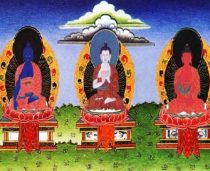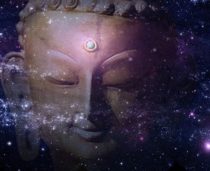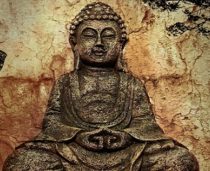he Buddhist doctrine has a couple of points: one is an understanding of impermanence. All things are impermanent in the Buddhist perspective and so that sets a lot of things in motion obviously because there is nothing static and nothing inherently exists. So this is another belief in Buddhism. They are kind of saying the same thing. Nothing is permanent, everything is impermanent.
So everything is in a constant state of change, and everything is changing. Something that changes over millennia is going to change over half a millennium, and if it’s going to change over half a millennium, then obviously when you break it down, everything is changing all the time. Nothing is static anywhere in the universe, at least in the Buddhist way of thinking.
Buddha taught that everything is impermanent, and by teaching this, he went against the prevailing teachings. The Hindus believe in the atman, so they believe in the awakening and enlightenment and that sort of thing, but they believe that there is a soul, an atman, which then goes on to the godhead.
The problem with that is that that is inherent separation. What Buddhists saw was that it set up an identity that people believe to be permanent, and since the eastern philosophy acknowledges or believes in everyone who say that a forms of reincarnation to have an atman means, you have to have a soul that is taking birth in multiple different bodies. And Buddha said no that’s not the way it works, everything is impermanent. At least the soul does not inherently exist.
There is nothing written in any religion, certainly not in Christianity, about the creation of the soul or anything like this, so it’s just kind of assumed that the souls are eternal and they’re existing since beginning this time. But the Buddhist says, no this is not the way it works. Everything is constantly changing, and everything moving and nothing inherently exist. So they don’t really say everything is moving, it’s not really a Buddhist teaching, movement is not necessarily a big part of Buddhism.















